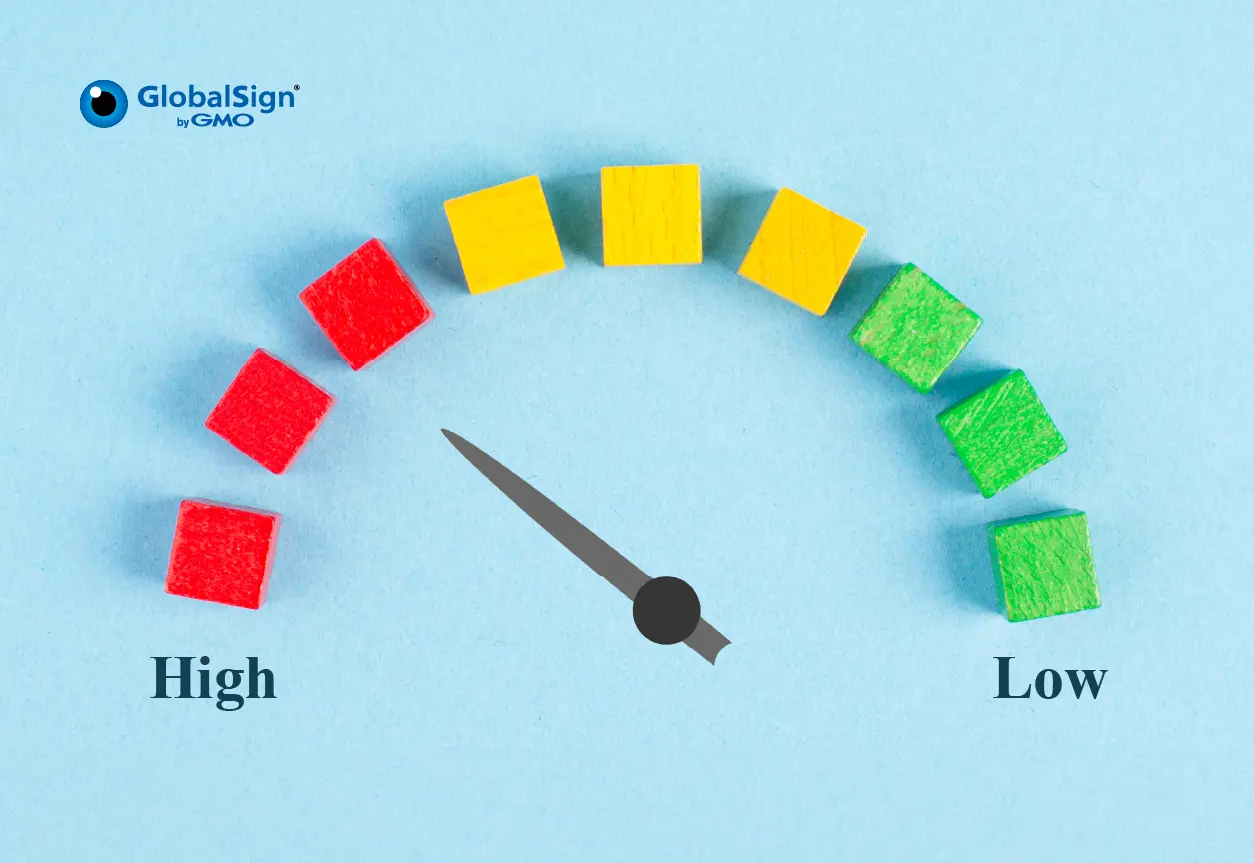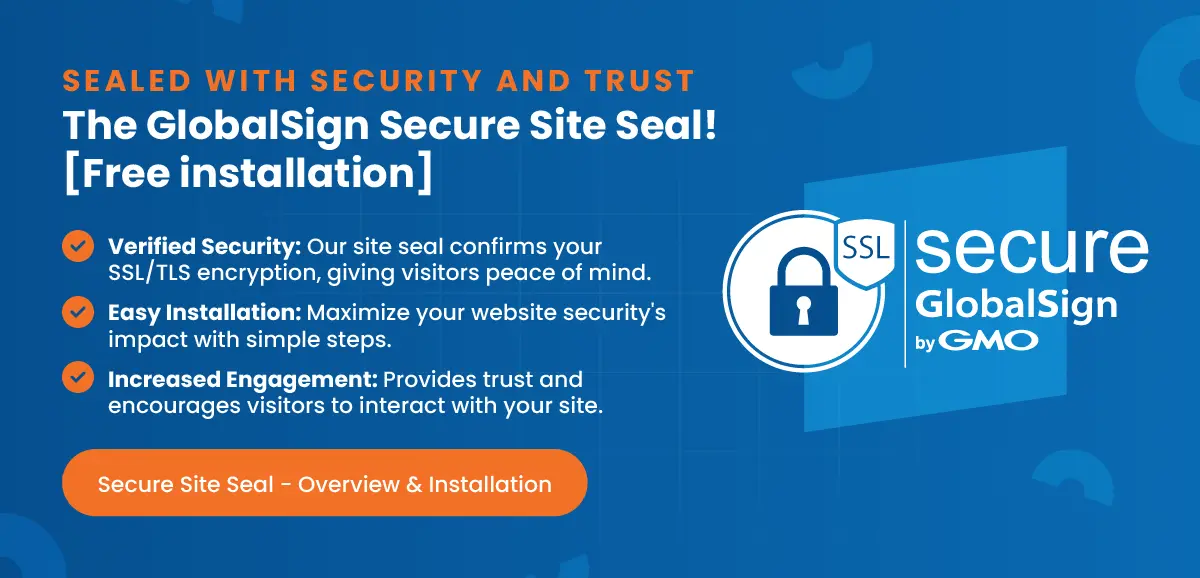Protecting digital identities is important for establishing online trust. SSL (Secure Sockets Layer) or Transport Layer Security (TLS) certificates have always served as the gold standard for maintaining secure server-browser communications and protecting the privacy and security of user data.
Generally speaking, there are two types of SSL/TLS certificates: free and premium (paid). Here, the first question that pops into your head is probably: “Why pay for a premium SSL/TLS certificate if there are free options?” Well, in some cases, a free SSL/TLS certificate can be all you need to ensure your website’s security, but a premium SSL/TLS certificate offers a higher level of security, more customisation options, and liability protection, among other benefits.
This blog will help you understand the difference between free and premium SSL/TLS certificates, and why you may consider upgrading your free SSL certificate to a more secure option.
What are Free SSL certificates?
A free SSL certificate is a type of SSL/TLS certificate that SSL/TLS providers offer for start-up businesses and bloggers. The SSL, or TLS protocol; encrypts server-browser communications and authenticates website identity to provide a secure and seamless user experience.
Free SSL certificates can be a cost-effective way for rising businesses to earn user trust and encrypt website communications. However, they may not be enough for all types of businesses, especially larger organisations or businesses that handle customer payments or require users to submit sensitive information.
Free SSL certificates use cryptographic algorithms to encrypt online communications in transit. The SSL/TLS protocol relies on a public key that the sender uses to encrypt the message; the receiver then can use the corresponding private key to decrypt and read the message. Only the private key’s holder can read the message’s contents.
What are the Disadvantages of Using Free SSL?
Free SSL is an attractive option for smaller businesses or bloggers with limited IT budgets. However, they have their fair share of downsides, which include:
Insufficient Security
Free SSL provides similar levels of encryption and security for your website. However, they don’t include real-time malware scanning or vulnerability assessments.
No Warranty Coverage
If a free SSL certificate is compromised, the provider doesn’t cover the damage caused by the security incident. That’s not the case with premium certificates, where the provider covers financial losses in case of a compromised certificate.
Limited Customer Support
Free SSL providers don’t offer dedicated support for certificate-holding websites. This can cause security and user experience concerns in the long run. It may also lead to technical issues that end up with extended downtime.
Lack of Certificate Management Capabilities
Businesses often need to manage SSL/TLS Certificate Signing Requests (CSRs) and issue, manage, and renew a large number of digital SSL/TLS certificates on a regular basis. Such a process can be very resource-intensive when done manually.
Moreover, free SSL certificates are often limited to a specific geographical area, which can make it harder for organisations to reach wider audiences.
It’s also worth noting that free SSL certificates are rarely compatible with all major browsers, including older versions of these browsers. They can also be challenging to install on certain types of servers or hosting platforms.
What are Premium SSL/TLS certificates?

A premium SSL/TLS certificate is an SSL/TLS certificate that offers more advanced features than free options, such as site seals, better RSA 2048+ bit encryption, insurance guarantees, and wider browser and server version support. Additionally, premium SSL/TLS certificates provide higher-validation certificates such as Domain Validation (DV) and Organisation Validation (OV) certificates.
Premium SSL/TLS certificates are suitable for e-commerce websites and any other type of website that handles payments and sensitive customer data.
What are the Key Differences Between Free SSL and Premium SSL/TLS?
Some of the key distinctions between free and premium/paid SSL/TLS are:
Validation Level
SSL/TLS certificates have 3 validation levels:
-
Domain Validation (DV) SSL/TLS Certificates: DV certificates are SSL/TLS certificates that provide encryption for a single domain. This is the only type of free SSL certificates you can get—they don’t protect your organisation’s identity nor provide the ability to protect multiple websites.
-
Organisation Validated (OV) SSL/TLS Certificates: OV SSL/TLS certificates validate your entire business’s identity, not just the website. This is only offered as a premium SSL/TLS certificate, which can help you establish trust for your organisation.
-
Extended Validation (EV) SSL/TLS Certificates: EV certificates offer a higher level of validation over OV SSL/TLS certificates as organisations need to go through a more rigorous validation process after the certificate signing request. Similar to OV certificates, EV SSL/TLS certificates are offered as part of a premium SSL/TLS validation package.
Warranty
Free SSL Certificates don’t offer warranty coverage, so in case of a security breach, the provider isn’t liable. On the other hand, premium SSL/TLS certificates come with warranty and business insurance packages that protect your business from failure and business loss in case a certificate is compromised.
Trust Seal
A premium SSL/TLS certificate authority will typically offer a trust seal that businesses can display on their websites to earn user trust and increase profitability. That’s not the case with free SSL certificates, which don’t offer any customer-facing trust indicators.
Are Premium SSL/TLS Certificates a Better Choice for Your Business?
Depending on your business needs, size, and priorities, a premium SSL/TLS certificate can be a much better and more secure option than free SSL certificates. Here’s what you get with premium SSL/TLS certificates:
Superior Security
Free SSL certificates provide encryption for your website and are designed to be sufficient for a small business or blog. However, as your business expands, a free SSL certificate doesn’t provide adequate protection for sensitive user data, especially if you handle payments or other forms of sensitive information.
Premium SSL/TLS certificates utilise the same strong encryption protocols and layer on top proactive threat hunting to ensure secure communications.
Access to Dedicated Support and Warranty Options
Most of the time, free SSL certificates are offered as part of a hosting plan from a hosting provider, but they don’t come with any support or warranty options.
Dedicated certificate support is important to promptly get support with technical and security issues. Insurance coverage is also critical to protect your organisation from business failure.
Better Trust Indicators for Users and Improved SEO Rankings
Premium SSL/TLS certificates offer trust indicators like trust seals to assure users that the website is safe and protects their sensitive data from being stolen or deleted.
Automated Certificate Management
Free SSL certificates don’t come with any certificate management automation capabilities. This means that you need to manually issue, renew, sort, and delete SSL/TLS certificates across your entire network.
Premium SSL/TLS certifications include automation options that streamline certificate life cycle management and free up your IT resources so your team can focus on more important tasks and projects.
Customisation Options
Premium SSL/TLS certificates can be fine-tuned to match your organisation’s needs. For example, if you purchase new domains, you can deploy multi-domain and Wildcard SSL/TLS certificates to protect multiple domains with the same certificate. The same goes for expanding your operations with new subdomains.
How to Transition from Free SSL Certificates to Premium SSL/TLS
To ensure a smooth transition from free to premium SSL/TLS, follow these steps:
-
Back up your current SSL/TLS setup. Before making a full transition to premium SSL/TLS, document and backup your own SSL/TLS certificate configuration so that you can revert to it in case the installation is interrupted.
-
Choose your premium SSL/TLS certificate package. Consider factors like the number of domains and subdomains you own and the needed warranty coverage.
-
Install the new SSL/TLS certificate on your web server and update DNS records. Depending on your server type, the exact installation steps will vary. This is a great resource to check out the installation process for different server types.
-
Test the new SSL/TLS configuration before full deployment. Make sure that everything is working as expected and take corrective actions for any issues that arise. An SSL/TLS diagnostics tool can make the process easier.
-
Continue monitoring your website to identify problems. Once you’ve finished the installation process, keep monitoring the website to proactively identify issues and security vulnerabilities. A real-time monitoring and threat detection tool can be particularly helpful here.
Ready to Take Your Website's Security to the Next Level?
Contact us now to learn about our range of premium SSL/TLS certificates and choose the right solution for your business.







